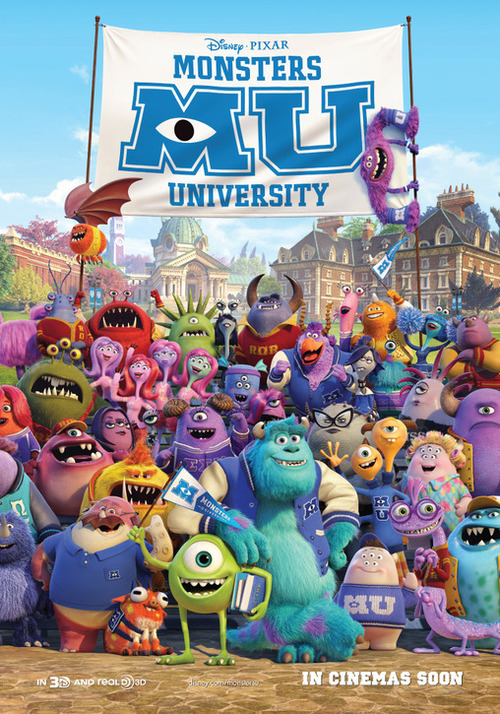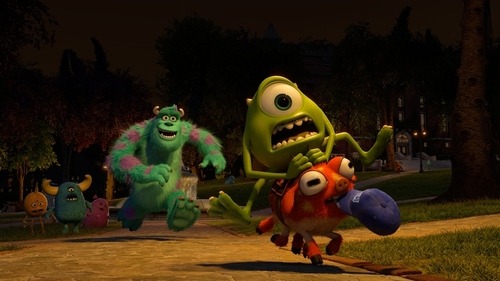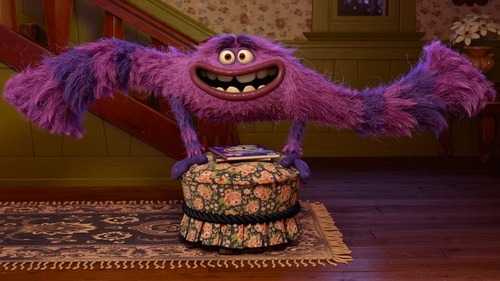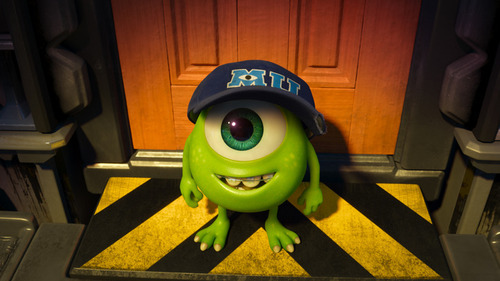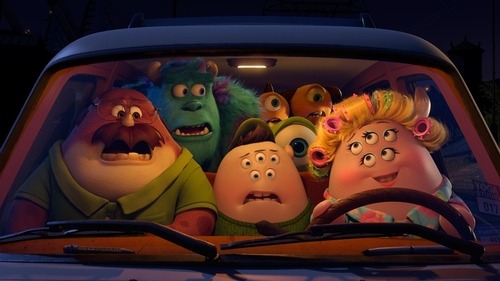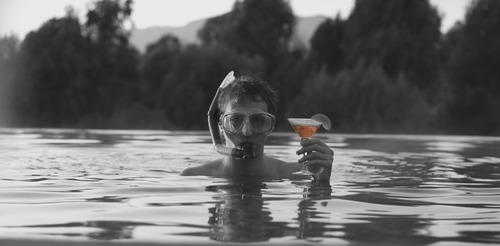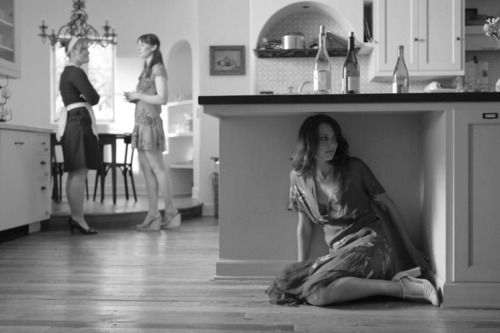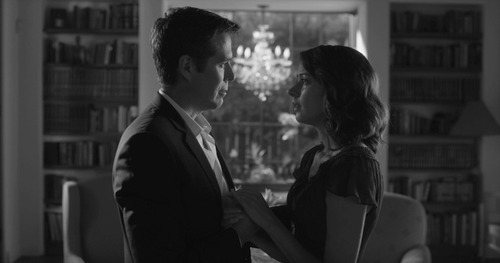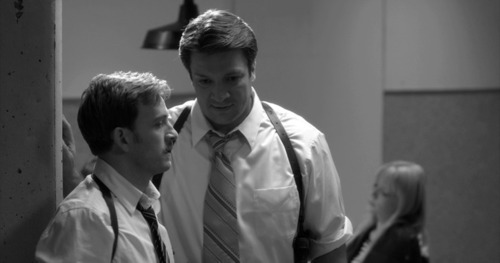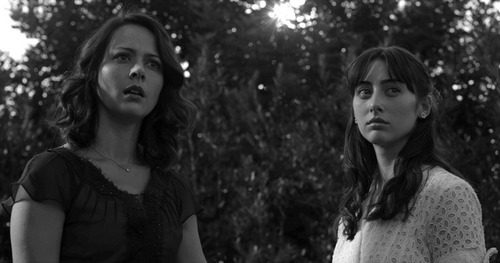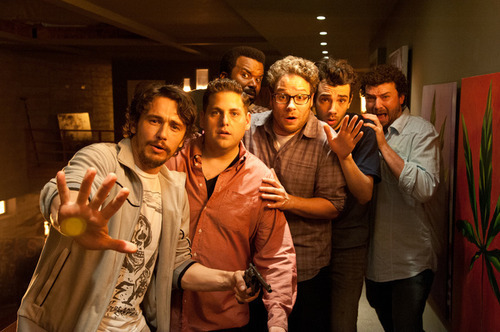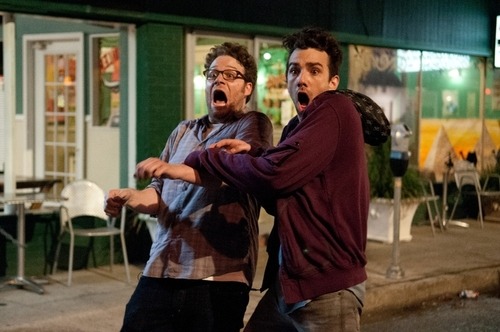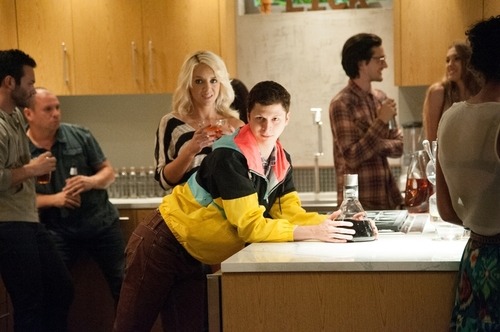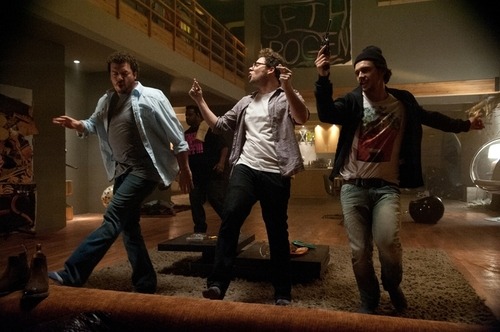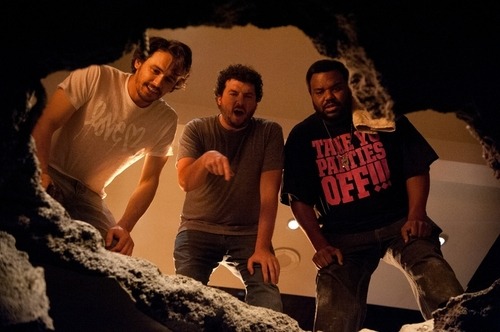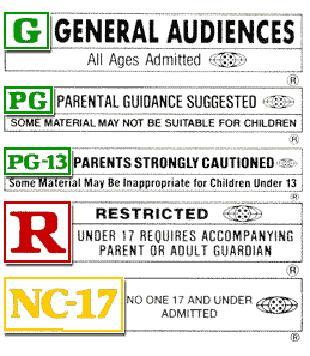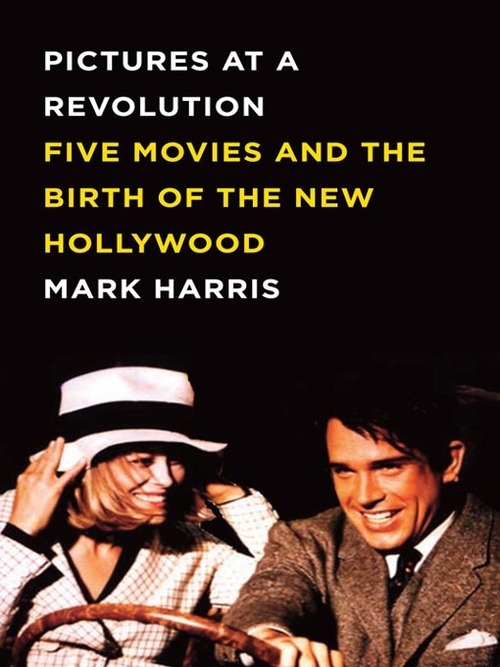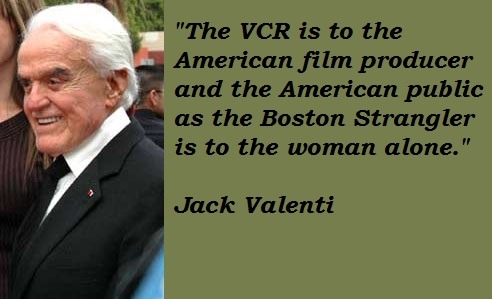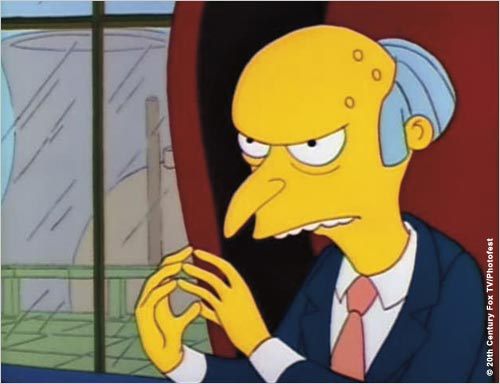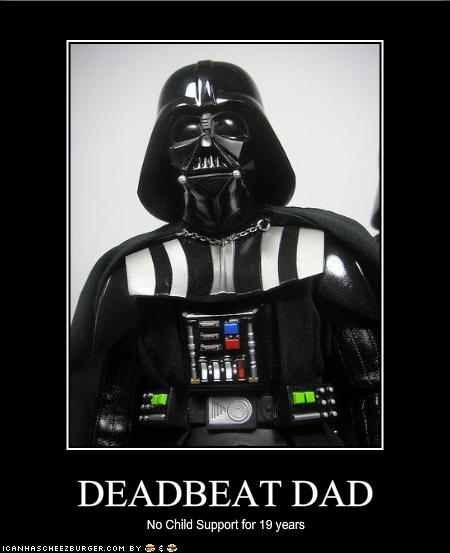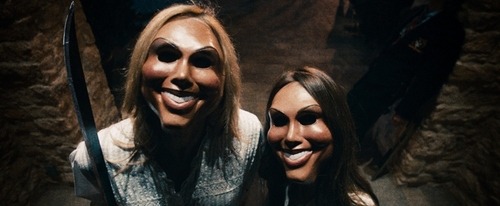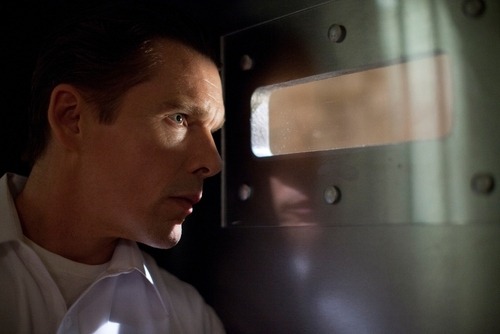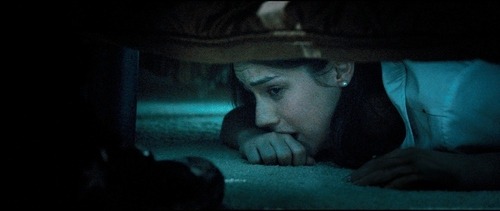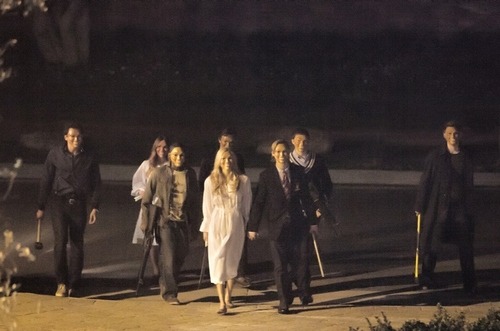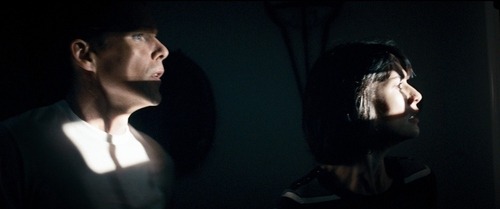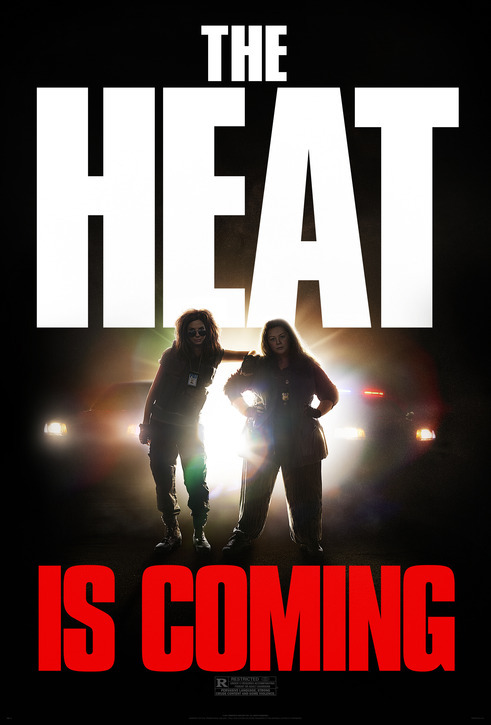
"I'm telling you there's a mole. It could be that albino rat or it could be your boss Puss in Boots."
Much like The 40 Year Old Virgin was the coming out, so to speak, of Judd Apatow to the world, so too was Bridesmaids for his Freaks & Geeks co-creator Paul Feig. Seemingly doomed to wallow forever in under-appreciated and underused-ville, Feig showed that world that he had the comedic chops to direct a feature film. His follow-up film, The Heat, seems like a can't miss comedic formula. Pair a beloved actress (Sandra Bullock) with a comedic force of nature (Melissa McCarthy) in a subversion of the buddy cop formula. So did it pay off? Read on to find out...
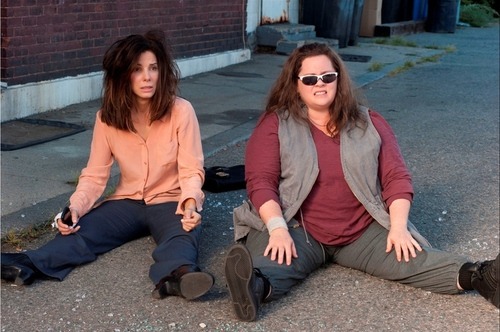
Sarah Ashburn (Bullock) is a by-the-book, horribly disliked FBI Agent yearning for a promotion when her boss Hale (Demian Bichir) gets promoted himself. In order to give Ashburn a chance to improve her reputation, Hale sends her to Boston to work on a drug running case that's given the agency some trouble of late. Upon arriving in Boston, Ashburn finds her first true lead, a low level drug dealer by the name of Rojas (Spoken Reasons), was just brought in for questioning by a reckless officer named Shannon Mullins (McCarthy).
It isn't long before Ashburn finds herself partnered with Mullins to try and crack open the case of who the mysterious drug lord at the top of the chain is. But naturally, their styles clash and their tenuous partnership is threatened by their equally stubborn behavior. Can they learn to not only accept one another for who they truly are, but solve the case, and make time for plenty of stops along the well-worn path of the buddy cop movie formula? I'll let you figure that one out for yourselves...
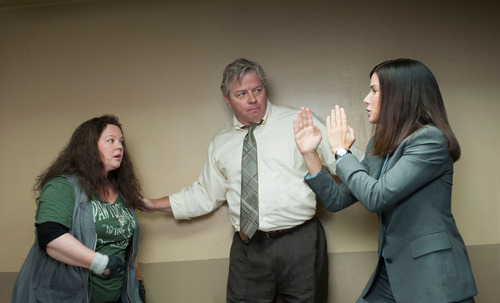
The Heat is a fantastically funny and winning film that I can see having great appeal across a number of demographics. In all honesty, the only complaint I can seriously level at it is that it's a bit lethargic and too long for it's own good, but any comedy clocking in at the two hour mark suffers from this same flaw. I personally was never bored or disinterested, and I actually liked the languid pacing of the film for one major reason: It's a character based comedy, and the more time you spend in the company of these characters, the more fully realized they become. Too often filmgoers complain that film characters have changes of heart or reversals too quickly, in the interest of speeding along the plot. Here the plot take a bit of a backseat to the character building, and in all honesty, those are the kind of films I love best.
I can guarantee that your average filmgoer will likely get bored with the film or nitpick bits and pieces that could have been cut or trimmed to keep the running time down, but coming out on the other side of the film, I view all those moments as essential. You can tell immediately that the film will be like this when all of the exposition is handled in one brief scene between Ashburn and Hale, and is followed by a scene of equal length that consists of nothing more than Ashburn sitting in her apartment watching tv and playing with her neighbor's cat. As a fan of character-based comedy, I knew immediately that I was in good hands with the film.
The film does a remarkable job of playing on your pre-conceived notions of what a buddy cop movie should be, and it almost delights in delaying certain tropes just to get you excited for those moments when they inevitably come. It's a fantastically clever way of playing on the audience's expectations, and I salute Feig and writer Katie Dippold for being smart enough to fall into the genre traps even as they're subverting them.
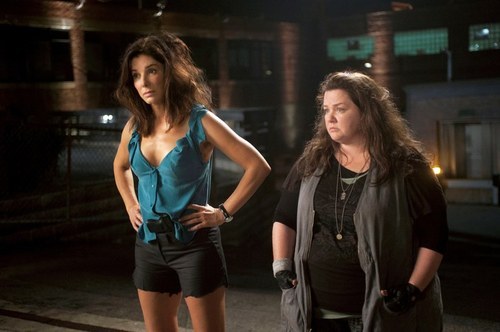
Sandra Bullock is a wonderfully talented actress, and really shines in roles like this. It's unfortunate when she is lauded for mediocre performances in maudlin dreck like The Blind Side, and then virtually ignored when she hits it out of the park like she does so often in films like this. McCarthy is fantastic as well, proving to be one of the most dynamic comedic screen presences currently working. This is a perfect case of the material rising to meet her formidable talents, something she was sadly not given in this year's Identity Thief, a vastly inferior film in every regard.
What truly sets this film apart though is the amazing supporting cast. Every actor in McCarthy's demented Boston family (in particular Jane Curtin, Bill Burr, Nate Cordrry & Joey McIntire) is hysterically funny, and hits all the beats you want them to. In smaller roles, great comedic talent like Tony Hale, Michael McDonald, Thomas F. Wilson, Dan Bakkedahl and Kaitlin Olson flesh out the world. They're all underused, but wisely leave you wanting more, so that's refreshing in this day and age.
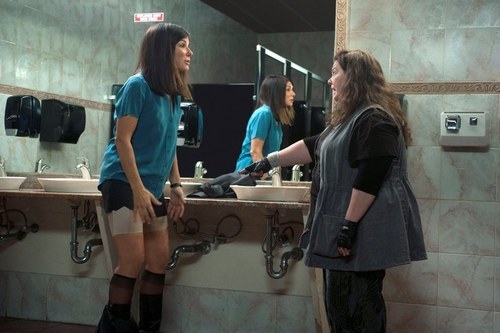
Ultimately, the film comes down to the chemistry between Bullock & McCarthy, and they are wonderful. I would have happily spent more time in their company, and if you're fans of theirs, you would be foolish not to see The Heat. Anyone who says that there are no great female roles would do well to watch Paul Feig's films, because he's probably the only male director right now focused on giving these talented and funny women the showcases they deserve.
GO Rating: 3.5/5

[Photos via BoxOfficeMojo]
